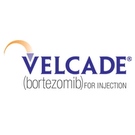Regardless Of Prior Therapies, Velcade Is Superior Over Dexamethasone In Relapsed Multiple Myeloma Patients

Exposure to prior myeloma therapies, specifically thalidomide (Thalomid) and autologous stem cell transplants (ASCT), does not influence the superior efficacy of Velcade (bortezomib) compared to dexamethasone (Decadron) in patients with relapsed/refractory myeloma, according to an analysis published in the British Journal of Haematology.
Researchers had previously found that Velcade resulted in a better response rate, time to progression, and overall survival compared to dexamethasone in relapsed/refractory myeloma patients. Based on these results, Velcade has become one of the standard treatments for relapsed/refractory myeloma patients.
Previous trial results had also shown that Velcade kept its superiority compared to dexamethasone irrespective of the number of prior therapies. However, the effect of specific prior therapies on outcome had not been examined prior to this recent study.
Researchers therefore conducted a subgroup analysis of previous trial results to determine if certain prior therapies, specifically thalidomide and ASCT, influenced Velcade’s efficacy relative to dexamethasone in relapsed/refractory myeloma patients.
In their analysis, the researchers found that none of the prior therapies, including thalidomide and ASCT, influenced Velcade’s superior efficacy compared to dexamethasone.
However, the researchers confirmed previous findings that patients with prior thalidomide treatment had a lower response rate, shorter time to progression, and decreased overall survival after Velcade treatment than patients not treated with thalidomide. The same effect was observed in patients treated with dexamethasone. Further analysis showed that these differences were independent of disease stage, the patient’s response to treatment, or the number of prior treatments.
The researchers also found that ACST patients experienced a higher overall response rate after Velcade treatment compared to patients who did not receive ASCT. They attribute this finding to common selection criteria for ASCT patients, such as youth and high response to treatment. ASCT patients also initially exhibited lower b2-microglobulin and high albumin levels, which are indicators of a positive prognosis.
Patients who received an ASCT and then entered the clinical trial after their first relapse exhibited the best response to Velcade compared to other subgroups, with an overall response rate of 48 percent, a complete response rate of 6 percent, and median time to progression of seven months.
The researchers suggested that further research is needed to determine the optimal treatment sequence for Velcade and other effective treatments in relapsed/refractory myeloma patients.
For more information, please see the report in the British Journal of Haematology (abstract).
Related Articles:
- None Found

